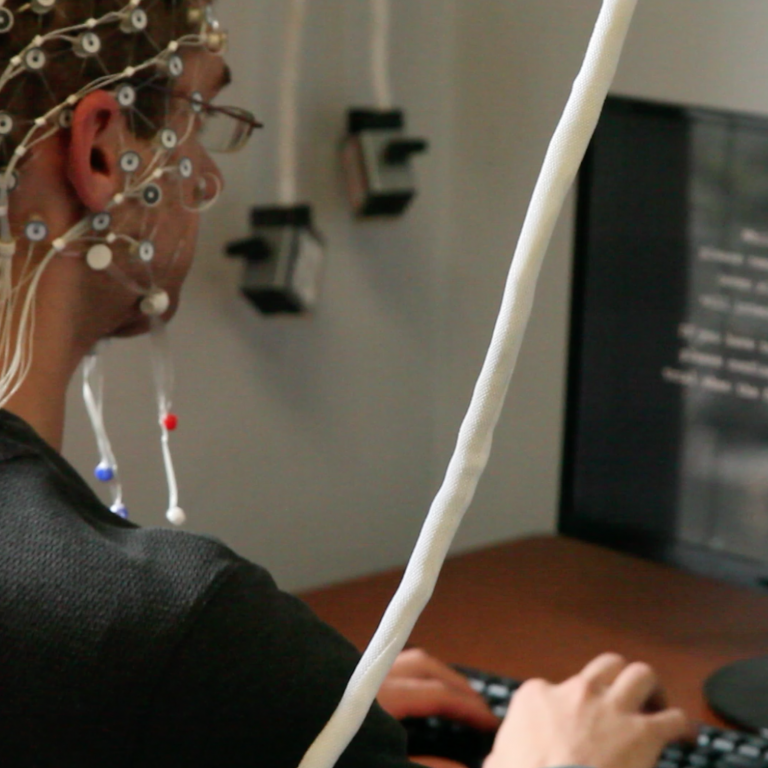In the armed conflicts across the world today we often hear the staggering numbers of casualties, not all of them combatants. Could the civilian death toll in war be due to errors in wise reasoning? In a new study published in PLOS ONE, Center for Practical Wisdom alumnus Dr. Scott Danielson explores how people make life-and-death decisions in wartime scenarios. This research demonstrates when bystanders in war are unidentified, people tend to assume they are enemy combatants. Across five experiments with participants from the United States and the United Kingdom, Danielson, Conway, & Vonasch (2024) highlight how unidentified victims are more often presumed guilty, indicating a bias that could have ethical implications for wartime decision-making. Danielson further explained the important role of epistemic humility and the ability to manage uncertainty in wartime decision-making.
The human cost of unwise reasoning:

"There have been many reported cases of mistaking innocent civilians for the enemy. Our findings could help explain those mistakes."
“Civilian casualties are a grim reality of modern warfare, and with the increasing reliance on airstrikes, the death toll of innocent bystanders has become impossible to ignore,” said Danielson. “About as many civilians as soldiers die in war each year, some during strikes targeted at enemy combatants. There have been many reported cases of mistaking innocent civilians for the enemy. Our findings could help explain those mistakes.”
Together with his colleagues, Dr. Andrew Vonasch of the University of Canterbury, New Zealand and Dr. Paul Conway of the University of Southampton, United Kingdom, Dr. Danielson presented more than 2000 participants with a realistic moral dilemma: a military pilot must decide whether to bomb a dangerous enemy target but in doing so, also kill a bystander. What should the pilot do?
“We set our first two experiments in the conflict between the United States and ISIS in Iraq. Results showed only 24% of people were in favor of a strategic bombing that would cost the life of a civilian bystander. Most people—over three in four—had humanitarian concerns. However, when the bystander’s identity was unknown, the outcome changed. 53% of people endorsed the bombing,” reported Danielson .
Crucially, about half of the American participants supported sacrificing unidentified bystanders despite no evidence that they were enemy combatants. Their research indicates that unidentified bystanders were considered to be acceptable collateral damage because they were presumed to be affiliated with or supporters of ISIS, even when the scenario had no evidence to support it.
"What we are seeing is a failure of wise reasoning...Ultimately, they decide the bystander is a combatant and judge accordingly. In our view, this is a both a failure of epistemic humility and management of uncertainly. It shows unwise thinking."
“What we are seeing is a failure of wise reasoning,” explained Danielson. One skill crucial to wisdom is epistemic humility, that is, knowing that you might not know everything about a situation or topic. Further, both the Berlin Wisdom Paradigm and Meeks & Jeste (2009) include the ability to manage uncertainty as critical to wisdom. Danielson stated “Our research suggests that around 1 in 4 people would not accept bombing a civilian but would accept bombing an unidentified bystander who could very well be a civilian. People here are not acknowledging the uncertainty of the situation or that they might not know everything about the context. Ultimately, they decide the bystander is a combatant and judge accordingly. In our view, this is a both a failure of epistemic humility and management of uncertainly. It shows unwise thinking.”
While most research in the psychological study of wisdom tends to focus on human flourishing and the positive aspects of wisdom, Danielson and his colleagues highlight a darker side: the potential real-world cost of unwise reasoning. “I agree with the scholar Barry Shwartz that wisdom is not just nice to have. Wisdom is crucial in nearly all aspects of life and for producing a functional and ethical society. The problem we have identified could be the cause of a great deal of suffering in the world and the next step is finding a solution. Currently my colleagues and I are looking into interventions to resolve this bias using techniques from wisdom research,” concluded Danielson.
Danielson and his colleagues are currently collecting data measuring wisdom, tolerance to ambiguity, and metacognition with future plans to try to account for humility in some way. As he moves forward with this new line of research, his team is hopeful they will be able to parse some of the intricacies in real world problem-solving to lead away from unwise reasoning.
About Scott Danielson:

Scott graduated from the University of Chicago Master of Arts Program in the Social Sciences. Afterwards, he continued his research as a research analyst in the Center for Practical Wisdom. He is currently a lecturer in psychology at the University of Canterbury where he earned his PhD. Scott teaches an undergraduate course on the psychology of wisdom that is the first of its kind in New Zealand, inspired by the research of scholars he met through the Center for Practical Wisdom.




